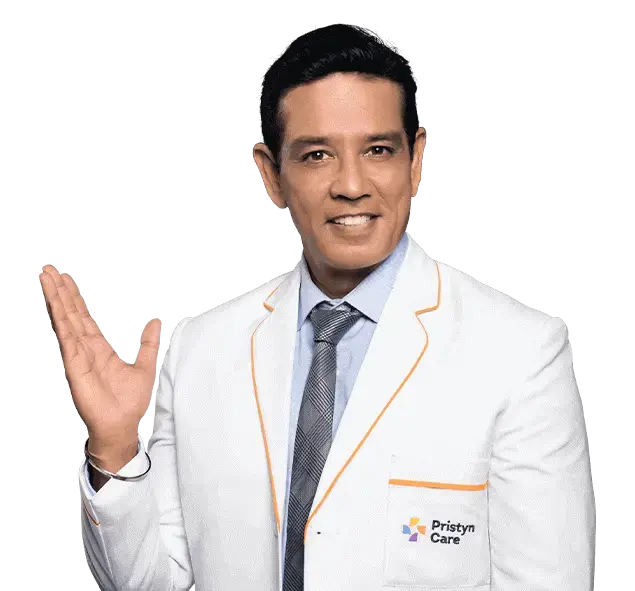

Available
Mastoidectomy Specialist
syed zubair
“It was my 2nd time with pristyn care everything was good till the surgery and consultation with Dr divya”
Date: 07-12-24
Narendra Rao N
“Doctor was good she explained each and everything very neatly and suggested medicine for 1 week and I m feeling better since 2 days .. I recommend this doctor for sinus problems ... Thank u Divya mam .......”
Date: 12-11-23

Shreyas
“She is a great gift from God. If my son is not well, the woman I took him to will take good care of him. He is feeling much better now.Very good treatment was given.”
Date: 17-03-25
Mahesh
“Had great time visiting mam n explained me all procedure with details,I would recommend this doctor to anyone.”
Date: 28-02-25

Available
Mastoidectomy Specialist

Available
Mastoidectomy Specialist
Raghavender Rao
“Excellent”
Date: 27-03-25
Gautham Raj
“Good just had consultation”
Date: 27-01-25

Available
Mastoidectomy Specialist

Available
Mastoidectomy Specialist

Available
Mastoidectomy Specialist

Available
Mastoidectomy Specialist
Om Sharma
“Om sharma ear Surgery very nice now we are better filling that”
Date: 27-12-24
Sunita yadav
“Nice”
Date: 27-11-23

Available
Mastoidectomy Specialist


Available
Mastoidectomy Specialist
Who is a Mastoidectomy Surgeon?
A mastoidectomy specialist, also known as a mastoidectomy doctor or mastoidectomy surgeon, is a highly trained ENT doctor who excels in diagnosing and treating conditions related to the mastoid bone in the ear. These specialists usually emerge from the field of otolaryngology, commonly referred to as ENT (Ear, Nose, and Throat) specialty. An ENT doctor or ENT surgeon has comprehensive knowledge about the complex structures of our ear, nose, and throat and treats various disorders affecting these areas.
A mastoidectomy specialist is an ENT doctor who focuses on the diseases affecting our mastoid bone. Located behind the ear, the mastoid bone can be subject to various infections and conditions that often require surgical intervention. The role of a mastoidectomy specialist involves conducting thorough examinations, employing modern diagnostic tools, recommending appropriate treatments, and performing surgeries like mastoidectomy when necessary. ENT surgeons in India are respected for their technical expertise and commitment to patient care.
What Medical Conditions Do Mastoidectomy Surgeons Treat?
A mastoidectomy surgeon treats various medical conditions associated with the mastoid bone and structures within the ear, such as:
- Acute mastoiditis: This condition refers to a bacterial infection that affects the mastoid cells, often appearing as a complication from an acute otitis media or middle ear infection.
- Chronic mastoiditis: A persistent infection that targets the middle ear and mastoid cells.
- Cholesteatoma: This refers to a benign growth of skin cells that develops in the middle ear or mastoid.
- Chronic otitis media (COM): This is characterized by a long-standing infection in the middle ear which can lead to complications like skin cysts (cholesteatoma), brain abscess, deafness, vertigo, facial nerve damage, meningitis, and labyrinthitis.
- Mastoiditis that hasn’t responded to antibiotics: Sometimes infections fail to improve despite antibiotic treatments. In such cases, surgical intervention may be required.
- Other diseases that spread to the mastoid bone: Certain diseases like cholesteatoma can spread to the mastoid bone, warranting prompt treatment.
- Conditions requiring cochlear implant placement: The placement of a cochlear implant necessitates a mastoidectomy to create an access point for the device.
When Should You Consult a Mastoidectomy Surgeon?
If you are experiencing any of the following symptoms or conditions, it would be prudent to consult an ENT specialist for mastoidectomy:
- Recurring ear infections: If your ear infections are frequent or persistent and do not respond to standard treatments like antibiotics, you should schedule a visit to a mastoidectomy specialist.
- Chronic ear drainage and irritation: Persistent ear drainage or irritation that fails to improve with common treatments may require a specialist’s attention.
- Hearing loss or impairment: Visit a specialist if you notice a reduction in your hearing abilities, especially if it is associated with recurring ear infections or other symptoms.
- Facial nerve weakness or paralysis: Weakness or paralysis of the facial nerve can be indicative of complications arising from mastoiditis or cholesteatoma.
- Vertigo or dizziness: Symptoms like vertigo or dizziness may suggest labyrinthitis or other severe conditions related to the ear.
- Meningitis or brain abscess: The presence of symptoms related to meningitis (an infection of the lining of the brain and spinal cord) or a brain abscess could signal complications from mastoiditis.
What are the Diagnostic Techniques used by Mastoidectomy Surgeons?
Mastoidectomy surgeons utilise a range of diagnostic techniques tailored to efficiently assess the condition of your ear. These techniques are designed to provide a comprehensive understanding of the underlying issues that might warrant surgical intervention.
- Physical examination: The first step often involves a thorough physical examination of the ear by the ENT surgeon. This includes inspecting the external ear, the tympanic membrane (your eardrum), and the mastoid area just behind your ear.
- Imaging tests: To get an in-depth understanding, mastoidectomy surgeons frequently order imaging tests such as CT scans and MRI scans. The CT scan evaluates the condition of the temporal bone and determines the extent of disease in the mastoid, while the MRI looks into soft tissue structures, helping rule out complications like brain abscesses.
- Audiological testing: To assess your hearing capabilities, ENT doctors may perform hearing tests like pure tone audiometry and tympanometry. These tests help determine the degree of hearing loss and evaluate the health of your middle ear.
- Endoscopic examination: Some conditions, like cholesteatoma, can be diagnosed through an endoscopic examination. In this process, surgeons use an endoscope to visually inspect the middle ear and mastoid region.
- Laboratory tests: In certain cases, laboratory tests such as cultures of ear drainage are ordered by the doctor to identify possible infectious agents.
What are the Different Types of Procedures Conducted by a Mastoidectomy Surgeon?
Mastoidectomy surgeons in India are equipped to perform a range of procedures based on your specific condition and disease severity. Here are some common procedures they carry out:
- Simple mastoidectomy: This procedure involves removing diseased mastoid air cells while leaving middle ear structures undisturbed.
- Modified radical mastoidectomy: In this surgery, the mastoidectomy specialist or ENT surgeon removes a portion of the middle ear structure in addition to the diseased mastoid air cells.
- Radical mastoidectomy: During this procedure, the entire mastoid air cell system, the eardrum, and middle ear structures are removed, leaving the ear canal open to the mastoid cavity.
- Cochlear implant placement: ENT surgeons also perform cochlear implant placements, often requiring a mastoidectomy as an initial step. These implants can restore hearing in individuals suffering from severe hearing loss.
- Cholesteatoma removal: Mastoidectomy is also used to remove abnormal skin growths (cholesteatoma) from the middle ear and mastoid areas.
When Should You Visit a Mastoidectomy Surgeon?
Mastoidectomy surgeons in India are some of the best medical professionals dedicated to treating a variety of ear-related conditions. Their expertise is invaluable in ensuring good ear health and preventing serious complications. A visit to such specialists becomes necessary under specific circumstances:
- If you experience recurring or persistent ear infections that do not respond to standard treatments.
- Chronic ear drainage or irritation can be a sign of deeper issues that these specialists can diagnose and treat.
- In case of hearing loss or impairment, especially if it’s accompanied by other ear-related symptoms.
- If you notice facial nerve weakness or paralysis, it might be indicative of serious problems that require immediate attention.
- Symptoms of vertigo or dizziness may signal conditions that could be treated by a mastoidectomy specialist.
- If you exhibit symptoms of meningitis or brain abscess, both complications of mastoiditis, immediate consultation with an ENT surgeon is essential.
Visiting an ENT surgeon at the right time can result in successful diagnosis and treatment of your condition, ensuring your well-being and continued ear health.
FAQs
- How can I find the best mastoidectomy surgeon for my condition?
The best way to find a suitable mastoidectomy surgeon is by seeking referrals from your family physician or an ENT doctor, researching online, or reaching out to health organisations that can provide a list of skilled surgeons in this field.
- What is the role of an ENT surgeon in a mastoidectomy procedure?
An ENT surgeon plays a crucial role in a mastoidectomy procedure, as they have specialised knowledge about the ear’s anatomy and related diseases. They perform the surgery under anaesthesia to remove the infected cells from the mastoid bone and ensure optimal patient care and recovery post-operation.
- What qualifications should a good mastoidectomy surgeon possess?
A proficient mastoidectomy surgeon should have completed MBBS, MS (ENT), and further specialisation in Otology or Neurotology from a recognised university or institution. They should also have considerable surgical experience, particularly in mastoidectomy procedures.
- How long does it usually take to recover from a mastoidectomy procedure?
Recovery time after a mastoidectomy may vary based on the patient’s health condition and the complexity of the surgery. Generally, it takes around three weeks for complete recovery post-surgery under the careful guidance of a qualified ENT surgeon.
- Are there any specific risks associated with undergoing a mastoidectomy procedure?
While mastoidectomy is generally a safe procedure, like any surgery, it carries some risks. These could include infection, hearing loss, facial nerve damage, and dizziness. However, these risks are significantly reduced when the operation is performed by a skilled and experienced mastoidectomy surgeon in India.













